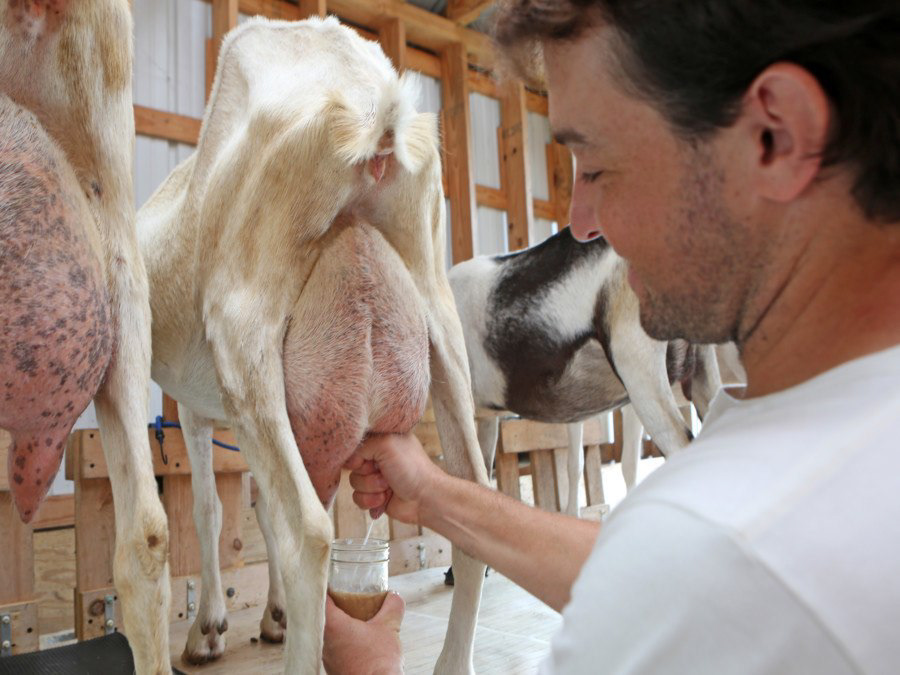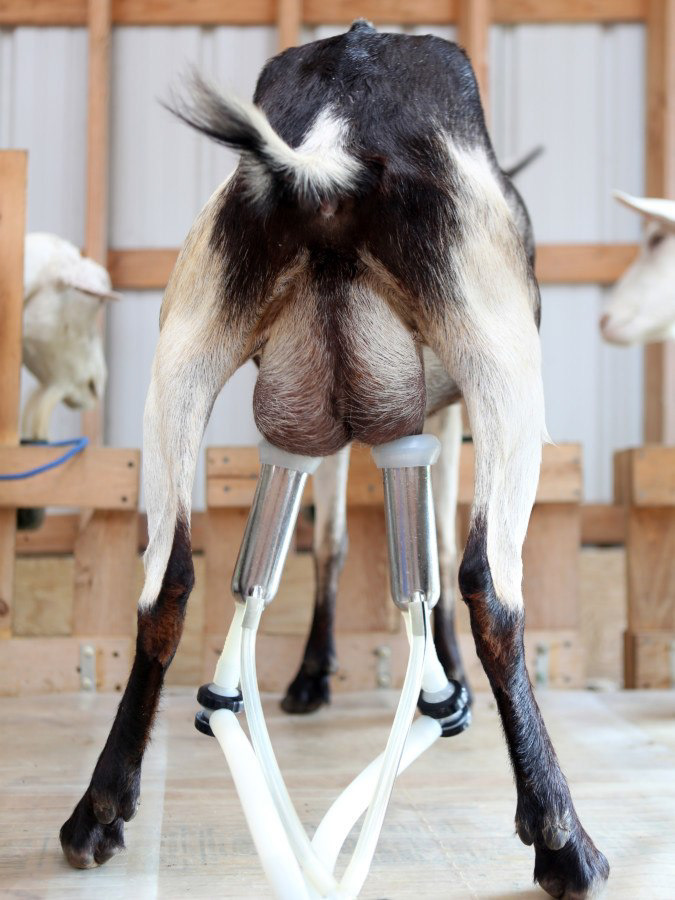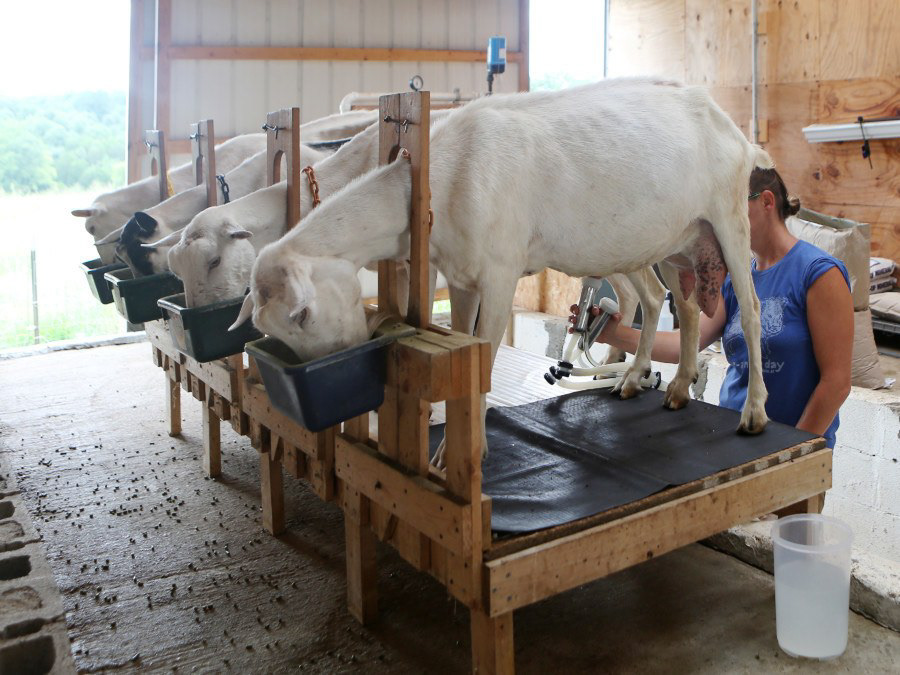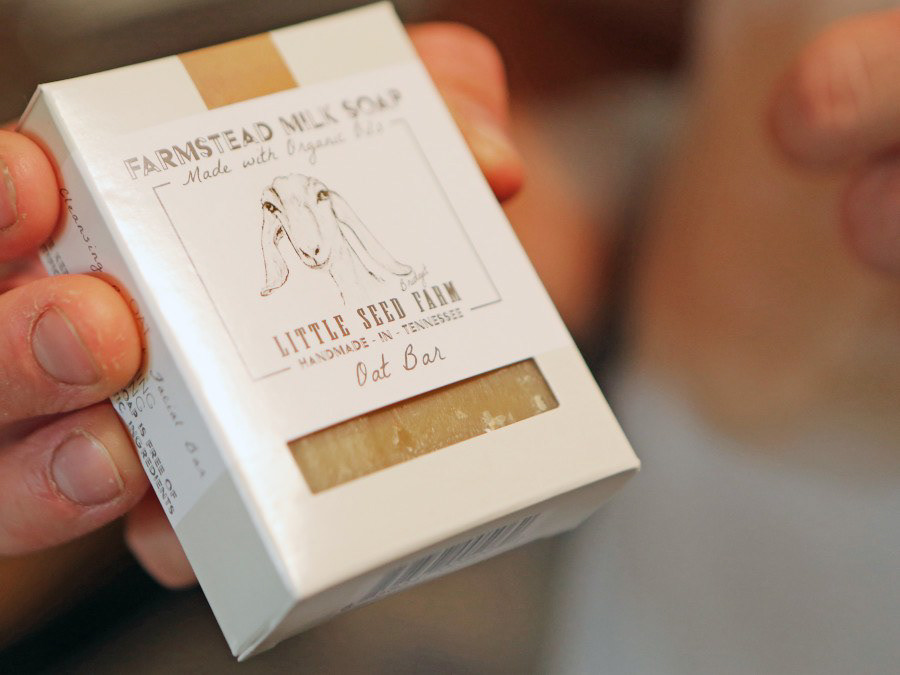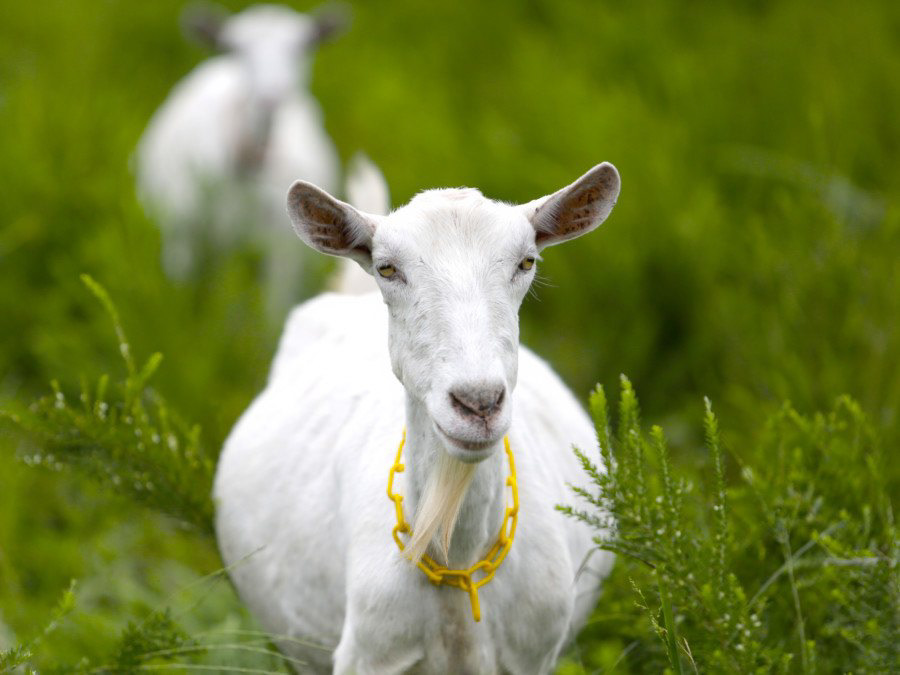As James Ray outfits himself in protective gear (not limited to an apron, gloves and a helmet), he artfully tells us the ins and outs of soap making. The process of making soap begins by mixing the base oils — olive and coconut — with natural ingredients and essential oils for different varieties. While these ingredients are mixing, James begins combining the milk (in frozen cubes) and lye to begin the saponification process — the chemical reaction of the ingredients that, in this case, brings the mixture to about 90 degrees. The two mixes are combined, allowing them to settle together before being poured into the mold. Within about an hour’s time, 300 bars of soap have been crafted with the utmost precision and commitment to the process. Then, the soap rests before being cut into bars and drying on the shelves for roughly a month. And this is a process that happens again and again and again — everyday, in fact — at Little Seed Farm.
A culmination of events led to the launch of Little Seed Farm, a sustainable farm best known for their goat’s milk soap. Eileen and James Ray crossed paths in New York City’s Hell’s Kitchen neighborhood and a mutual appreciation for sustainability led them to abandon their big city lifestyle (and careers in fashion and finance, respectively) for farm life in Tennessee. “We decided that, before having kids, we wanted to do something different with our lives; we wanted a more sustainable lifestyle,” James shares. Their passion for sustainability and lack of understanding what exactly they were getting themselves into brought them to 84 acres in Middle Tennessee. Four years later, in addition to those 84 acres, they have two beautiful children, six dogs, 40 goats (15 in milk), ducks, chickens and a growing business.
read more here.
originally published on styleblueprint.com
